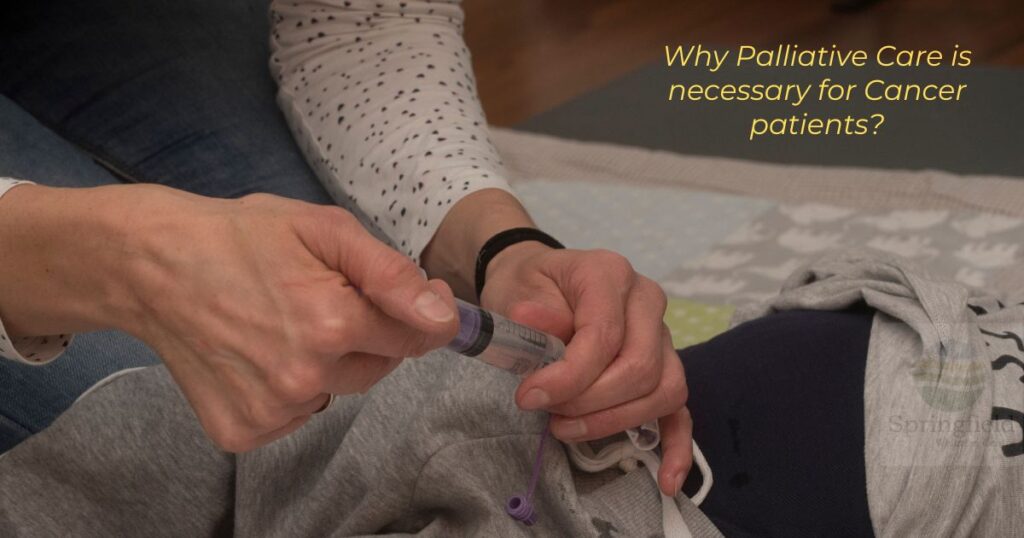Dealing with cancer is a difficult journey that has an impact on individuals’ physical health as well as their emotional and mental well-being. The provision of complete support and comfort to cancer patients throughout and after treatment is made possible in large part by palliative care. This blog attempts to discuss the importance of palliative care and how it improves cancer patients’ overall quality of life.
Understanding Palliative Care
With a focus on symptom management, pain management, and meeting the emotional, social, and spiritual needs of cancer patients, palliative care is a specialised approach. Palliative care, in contrast to hospice care, can be given at any point during cancer treatment with the goal of enhancing the patient’s wellbeing, regardless of the disease’s prognosis.
It needs to be understood that Palliative care is different from Palliative treatment.
The Goals of Palliative Care for Cancer Patients
- Pain and Symptom Management: Palliative care makes cancer patients feel as little pain and discomfort as possible, improving their general comfort throughout treatment.
- Improved Quality of Life: Palliative care attempts to enhance the patient’s quality of life by addressing both the physical and emotional problems.
- Emotional and Psychological Support: Cancer patients frequently experience worry and mental anguish. Palliative care offers guidance and assistance to deal with these difficulties.
- Coordination of Care: Together with oncologists, palliative care experts make sure that patients receive thorough and well-coordinated treatment.
Benefits of Palliative Care
- Holistic Approach: Physical, emotional, and spiritual needs are all taken into account when providing palliative care for patients.
- Reduced Hospitalizations: Effective palliative care can lessen the number of emergency room visits and hospital admissions.
- Better Decision Making: The decision-making process for treatment and end-of-life care is aided by palliative care for patients and their families.
- Patient Empowerment: Palliative care gives patients the ability to actively take part in their treatment process by incorporating them in the care planning process.
When to Consider Palliative Care
Broadly speaking, palliative care is given for patients where curative treatment cannot be given. Here are the following examples in which curative treatment is not possible
- Advanced stage of cancer (usually stage 4)
- Recurrence
- Age and Fitness factor
- Inoperable status – like for example if the tumor tissue is almost touching the aorta, it is not operable.
Palliative care should be considered:
- At Diagnosis: Early palliative care intervention can assist in managing symptoms.
- During Treatment: Complementing cancer treatments with palliative care can enhance the overall healing process.
- For Advanced Cancer Care: Palliative care is crucial for patients with advanced cancer when there are few therapeutic choices available due to the disease’s progression.
The Palliative Care Team
A palliative care team typically includes:
- Palliative Care Physician: Specializes in managing pain and symptoms.
- Nurses: Provide hands-on care and emotional support.
- Social Workers: Address emotional and practical needs, connecting patients with resources.
- Spiritual Counselors: Offer spiritual support if desired.
- Pharmacists: Expertise in managing medications and potential side effects.
For cancer patients, palliative care is a crucial support system that focuses on their comfort and wellbeing throughout their course of treatment. Palliative care helps patients keep their dignity and control over their lives while improving their overall quality of life by managing their pain, symptoms, and emotional needs. By providing a holistic approach to care that goes beyond only medical treatment, early integration of palliative care into cancer treatment might significantly improve patient outcomes. In a nutshell, palliative care makes sure that cancer patients get the full assistance they need.
